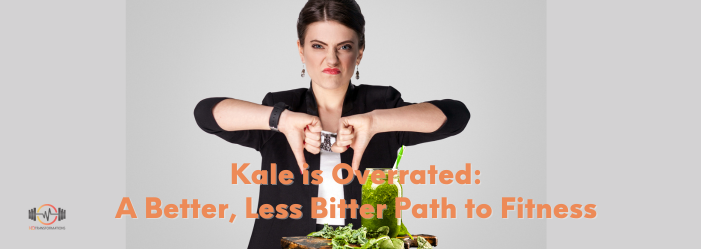The Ultimate Guide to Time-Restricted Eating for 80s and 90s Babies

Turning Back Time on Your Metabolism:
The 80s and 90s Babies' Guide to Intermittent Fasting
Hey, 80s and 90s babies, this one's for you! Noticed your body doesn't snap back like it used to? It's not about lacking discipline or overeating. The secret lies in the timing of your meals. Yep, I'm talking about intermittent fasting and time-restricted eating. These terms have been thrown around a lot, with both good and bad press, I'm here to help you understand how it affects our metabolism, especially after hitting the 35-year mark.
The Big Misconception: More Meals, More Metabolism?
Remember when we were told to eat five small meals a day to keep our metabolism going? Well, it turns out that advice wasn't exactly grounded in reality. Your body needs a break from constant eating, not a non-stop food fest. By giving ourselves a 12-hour fasting window (say, 7 p.m. to 7 a.m.), we allow our bodies the time needed to digest and repair. This isn't just about weight management; it's about giving your internal systems the downtime they desperately need.
Why Your Sleep Matters
A good night’s sleep is more precious than gold, especially in our fast-paced world. But here's something you might not have considered: eating late into the night could be sabotaging your sleep quality. Ensuring your stomach is relatively empty by bedtime can significantly improve how well you sleep. It’s not just about avoiding discomfort; it's about allowing your body to enter its natural repair and recovery cycles without the added burden of digestion.
For the young parents out there, this insight goes double for your little ones. Instilling the notion that sleep doesn't necessitate a full stomach is vital. The habit of feeding babies right before sleep can program their bodies to rely on a full stomach for a good night's rest, a pattern that might affect their sleep quality later in life. Instead, try feeding them, then engaging in a brief, gentle playtime. This teaches them to associate sleep with feeling comfortable and calm, not just with being full.
When your stomach is empty at night, your body isn't just resting; it's undergoing a kind of overnight maintenance. Your brain, for instance, essentially goes through a detox process, clearing out the waste that accumulates during the day. This is only truly effective when the body isn't preoccupied with digesting that late-night snack. So, the formula for better sleep is simple yet profound: finish your last meal early enough to give your body a 12-hour break before breakfast. This way, you're not just resting; you're optimizing your body's natural healing processes.
Remember, those struggling to fall asleep or stay asleep might find relief by simply adjusting their eating schedules. An empty stomach at bedtime can lead to deeper, more restorative sleep, proving that sometimes, less (eating late) is indeed more (quality sleep).
Breaking Your Fast: Do It Right
Emerging from your fasting state isn't just a matter of satisfying hunger; it's an opportunity to set your body up for optimal functioning throughout the day. The first meal after your fast plays a pivotal role in how your body regulates blood sugar levels, manages energy, and even how it processes nutrients for the rest of the day. Starting with fiber-rich vegetables isn't just a healthful choice; it's a strategic one. Vegetables are low in calories but high in nutrients and fiber, which stabilizes your blood sugar and provides a slow, steady source of energy, rather than the peaks and troughs associated with more refined foods.
This mindful approach to breaking your fast extends beyond just choosing vegetables first. It's about understanding the order and composition of your meals. After vegetables, incorporating a quality source of protein helps rebuild and repair muscle tissue and keep you feeling full and satisfied. Only then should you consider introducing starches and carbohydrates. This methodical approach ensures that your body doesn't experience the dramatic insulin spikes that can lead to cravings and energy crashes later in the day.
The significance of this meal sequence cannot be overstated. It's akin to laying a foundation for your body's energy and nutrient absorption for the day ahead. By prioritizing vegetables, then protein, and finally starches, you encourage your body to utilize these nutrients efficiently. You might find that you're not only less hungry throughout the day but that your energy levels are more consistent, and your overall mood and productivity are enhanced.
Moreover, this practice of intentional eating after fasting can also influence your long-term relationship with food. It teaches discipline and mindfulness, encouraging a more thoughtful approach to eating that can lead to lasting health benefits. So, when breaking your fast, remember: the quality of this meal sets the tone for your entire day. Make it count by choosing foods that nourish, satisfy, and support your body's needs.
A Personal Note on Fasting
Diving into my own fasting journey has been a revelation in more ways than one. Initially, I viewed it as a mere tool for weight management, but it quickly unfolded as a profound journey of self-discovery and a deeper understanding of my body's needs and signals. The first few hours and days were indeed the most challenging, as my body adjusted to this new rhythm. However, this period of adaptation wasn't just about physical hunger; it was a mental and emotional recalibration as well.
Throughout this process, I learned to differentiate between true hunger and habitual eating. This distinction is crucial, as it empowers you to make conscious decisions about food, rather than being led by cravings or routines. Moreover, the experience illuminated my relationship with food, showcasing how often I turned to it for comfort or boredom, rather than necessity. The discipline of fasting, therefore, extended beyond mere meal timing—it became a lesson in mindfulness and intentionality.
This journey also underscored the importance of listening to my body. Fasting isn't a one-size-fits-all approach; it requires customization and attunement to one's own physical and emotional cues. Recognizing when to push forward and when to ease back was key to making fasting a sustainable and beneficial practice in my life. Sharing these personal reflections isn't just about narrating my journey; it's about encouraging others to approach fasting (or any dietary change) with curiosity, patience, and a willingness to learn from the experience.
Effective Fasting Tips
- Gradually extend your fasting window to 14 hours, if possible. It's about finding a balance that works for your body without overdoing it.
- End and start your fast with the right foods: prioritize fiber, protein, and healthy fats.
- A post-dinner walk can do wonders for your digestion and overall health. Instead of lounging, try moving around to aid your body in processing your meal.
It's About Timing and Balance
Navigating the journey of intermittent fasting and time-restricted eating ultimately boils down to finding a harmonious balance that aligns with our unique bodily rhythms and lifestyles. The essence of this practice isn’t rooted in deprivation or stringent discipline, but rather in syncing our eating patterns with our body's natural cycles. This alignment fosters a deeper connection with our physical selves, encouraging a more intuitive understanding of hunger and satiety.
The beauty of focusing on timing and balance lies in its simplicity and adaptability. It’s not about overhauling your diet overnight or adhering to a rigid eating schedule that feels unnatural. Instead, it’s about gradually adjusting how and when you eat to enhance your body's metabolic efficiency. This might mean shifting your dinner time earlier or extending your overnight fast a bit longer, but always within a framework that feels right for you. The goal is to cultivate a sustainable practice that not only benefits your metabolism but also supports your overall well-being.
Embracing this balanced approach encourages a mindset shift from viewing food as an enemy to recognizing it as a vital source of nourishment and energy. It's a reminder that our bodies are not machines to be controlled, but living, breathing entities that thrive on care and attention. By honoring our bodies with thoughtful timing and balance in our eating habits, we open the door to not just improved physical health, but a richer, more attuned way of living.
This isn't just about shedding pounds; it's about rejuvenating our bodies from the inside out. If you're ready to reset your metabolism and embrace a healthier lifestyle, reach out and let me help you safely and effectively explore the benefits of time-restricted eating. Together, we can rediscover our best selves, one meal at a time.














